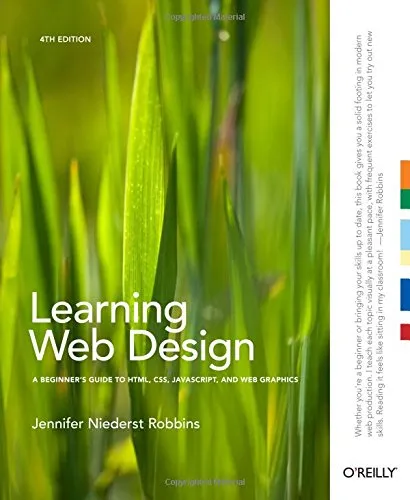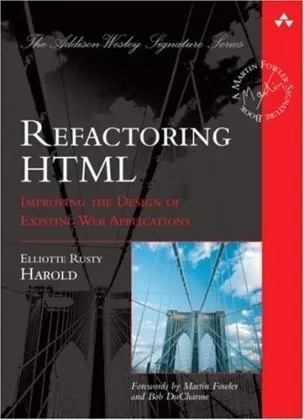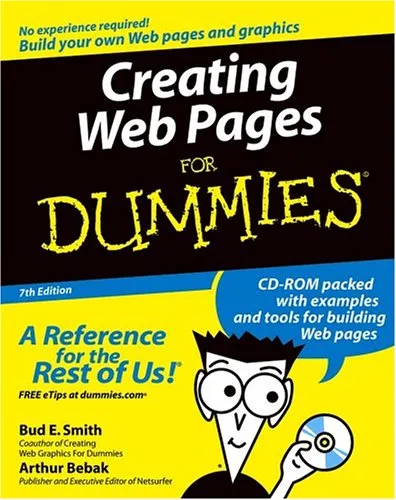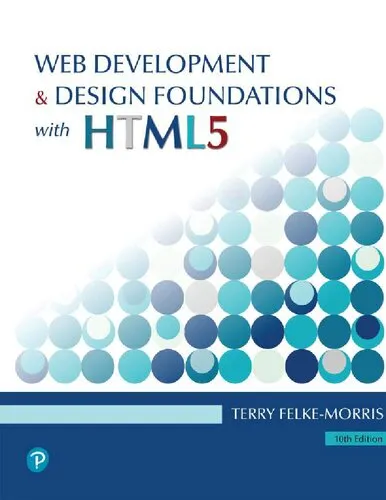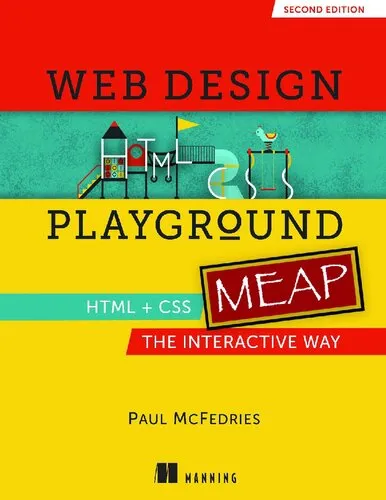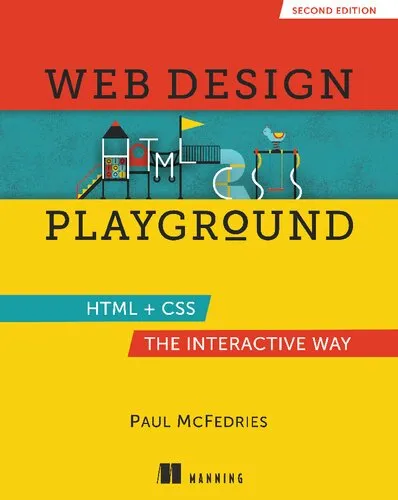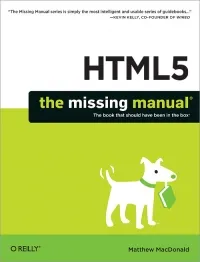Learning Web Design: A Beginner’s Guide to HTML, CSS, JavaScript, and Web Graphics
4.6
Reviews from our users

You Can Ask your questions from this book's AI after Login
Each download or ask from book AI costs 2 points. To earn more free points, please visit the Points Guide Page and complete some valuable actions.Related Refrences:
Introduction to "Learning Web Design: A Beginner’s Guide to HTML, CSS, JavaScript, and Web Graphics"
Welcome to the world of web design, where creativity meets technical expertise. Whether you are a newcomer or someone looking to refine your skills, "Learning Web Design" offers a comprehensive guide to understanding the essentials of creating beautiful, functional websites.
Detailed Summary of the Book
This book serves as an immersive introduction to web design, covering the fundamental technologies that shape modern websites. It lays out the principles of HTML (HyperText Markup Language), CSS (Cascading Style Sheets), and JavaScript, which are the cornerstone languages of the web. The book also delves into web graphics, an integral component in creating visually appealing user interfaces.
Throughout its pages, the book provides step-by-step instructions, illustrative examples, and engaging exercises designed to reinforce the reader’s learning experience. Each chapter builds progressively, introducing increasingly complex concepts and providing necessary insights into the dynamic interplay between different technologies. By the end, readers will have a solid foundation from which they can explore more advanced topics or begin immediately applying their skills to real-world projects.
Key Takeaways
- Understand the structure of HTML and how it forms the backbone of web content.
- Learn how to style and format web pages using CSS, enabling customization and aesthetic enhancement.
- Gain familiarity with JavaScript, enabling interactive elements and dynamic content updates.
- Discover the importance of web graphics and the tools necessary to create them, enhancing the visual appeal of web pages.
- Learn best practices and modern techniques in web design, ensuring websites are responsive, accessible, and efficient.
Famous Quotes from the Book
"Web design is a blend of creativity and discipline, an art translated through technology."
"Understanding the synergy between HTML, CSS, and JavaScript transforms a simple page into an interactive experience."
Why This Book Matters
In an era where digital presence is paramount, "Learning Web Design" stands out as an essential resource for anyone interested in stepping into the world of web development. It is not just about acquiring skills; it is about gaining confidence in applying them. The book equips readers with the knowledge to build modern, responsive web pages while fostering creativity and critical thinking.
Furthermore, this book caters to a wide audience—whether you're a student eager to learn, a professional transitioning into tech, or a hobbyist exploring new interests. It emphasizes accessibility and encourages readers to embrace best practices, preparing them for the evolving landscape of web technologies.
In summary, "Learning Web Design" offers a holistic approach to web development education. It empowers readers to transmute theoretical knowledge into tangible skills, culminating in the ability to craft compelling web designs. This book’s practical insights and systematic approach make it an invaluable tool in both personal growth and professional advancement in the digital space.
Free Direct Download
You Can Download this book after Login
Accessing books through legal platforms and public libraries not only supports the rights of authors and publishers but also contributes to the sustainability of reading culture. Before downloading, please take a moment to consider these options.
Find this book on other platforms:
WorldCat helps you find books in libraries worldwide.
See ratings, reviews, and discussions on Goodreads.
Find and buy rare or used books on AbeBooks.
Questions about Book
1467
بازدید4.6
امتیاز50
نظر98%
رضایتReviews:
4.6
Based on 0 users review
"کیفیت چاپ عالی بود، خیلی راضیام"
